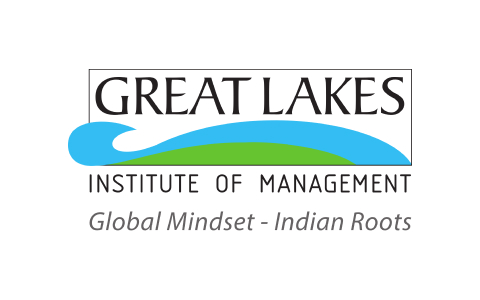Exploratory Data Analysis Projects
Enroll in this Exploratory Data Analysis Projects Course to learn more on Data Visualisation, Analysing the Data and more. Start today and enhance your Data Analysis knowledge and skills!

Ratings
Level
Learning hours
Learners
Skills you’ll Learn
About this course
This free course on Exploratory Data Analysis (EDA) Projects includes six amazing topics for you to dive into. Firstly, we will start with data visualization and then move on to analyzing data. This course is designed to teach you how to effectively explore and analyze different types of data. The topics covered in this course are diverse and fascinating, from analyzing football world cup data to exploring the world of Marvel superheroes.
We will also delve into the world of literature by exploring the top 50-selling books on Amazon. If you are a foodie, you will love analyzing the top 10 Indian food dishes. For sports enthusiasts, we will take a deep dive into IPL data and cricket world cup data. Our course is perfect for beginners who want to learn more about EDA and how to analyze different types of data. With the help of our experienced instructors, you will learn the necessary tools and techniques to conduct EDA and build insightful visualizations.
Course Outline
What our learners enjoyed the most
Skill & tools
63% of learners found all the desired skills & tools
Ratings & Reviews of this Course
Frequently Asked Questions
Will I receive a certificate upon completing this free course?
What are the prerequisites required to learn this Exploratory Data Analysis Projects Course?
You do not need any prior knowledge except knowing the Basics of Python to learn this Exploratory Data Analysis Projects Course.
How long does it take to complete this free Exploratory Data Analysis Projects course?
Exploratory Data Analysis Projects course is a 2.5 hour long course but it is self-paced. Once you enroll, you can take your own time to complete the course.
Will I have lifetime access to the free course?
Yes, once you enroll in the course, you will have lifetime access to any of the Great Learning Academy’s free courses. You can login and learn whenever you want to.
Will I get a certificate after completing this Exploratory Data Analysis Projects Free course?
Yes, you will get a certificate of completion after completing all the modules and cracking the assessment.
Popular Upskilling Programs
Exploratory Data Analysis
Exploratory data analysis (EDA) projects are essential in understanding and extracting valuable insights from data. EDA refers to the process of examining and analyzing data sets to summarize their main characteristics, identify patterns and relationships, and develop hypotheses that can guide further analysis. This process allows data analysts to gain a deeper understanding of the data and make informed decisions based on their findings.
EDA projects can be conducted in various industries, including finance, healthcare, retail, and marketing. In finance, for instance, EDA projects can help in identifying trends in stock prices, analyzing risk factors, and identifying profitable investment opportunities. In healthcare, EDA projects can help in analyzing patient data to identify health patterns and predict potential risks. In retail, EDA projects can help in analyzing sales trends, identifying customer preferences, and optimizing inventory management. In marketing, EDA projects can help in identifying the most effective marketing strategies and target audiences. EDA projects usually involve a series of steps that help in the analysis of the data. These steps include data cleaning, data exploration, and data visualization. Data cleaning involves removing or correcting any errors, inconsistencies, or missing data from the dataset. Data exploration involves examining the distribution of data, identifying trends, and assessing the relationship between variables. Data visualization involves using graphs, charts, and other visual representations to communicate the findings of the analysis.
One common tool used in EDA projects is the histogram, which is a graph that displays the distribution of a variable. A histogram shows the frequency of data points that fall into each category or bin. Another tool is the scatter plot, which is used to show the relationship between two variables. Scatter plots display the data points as dots on a graph with the x-axis representing one variable and the y-axis representing the other. EDA projects can also involve the use of statistical methods such as regression analysis, hypothesis testing, and clustering. Regression analysis is used to analyze the relationship between two or more variables. Hypothesis testing is used to test whether a particular hypothesis is true or false based on the data. Clustering is used to group data points into similar clusters based on their characteristics.
One of the key benefits of EDA projects is that they help in identifying outliers, which are data points that are significantly different from the rest of the data. Outliers can distort the analysis and lead to incorrect conclusions. By identifying outliers, analysts can either remove them from the dataset or investigate them further to understand why they are different from the other data points. Another benefit of EDA projects is that they help in identifying patterns and trends in the data. By understanding these patterns, analysts can develop hypotheses and make predictions about future events. For example, if a retail store notices that sales of a particular product increase during a certain time of year, they can plan to stock up on that product during that period to meet the increased demand.
In conclusion, exploratory data analysis projects are essential in understanding and analyzing data. They involve a series of steps that help in cleaning, exploring, and visualizing the data to identify patterns, trends, and outliers. EDA projects can be conducted in various industries and involve the use of statistical methods such as regression analysis, hypothesis testing, and clustering. The insights gained from EDA projects can help in making informed decisions and predictions based on the data.



































